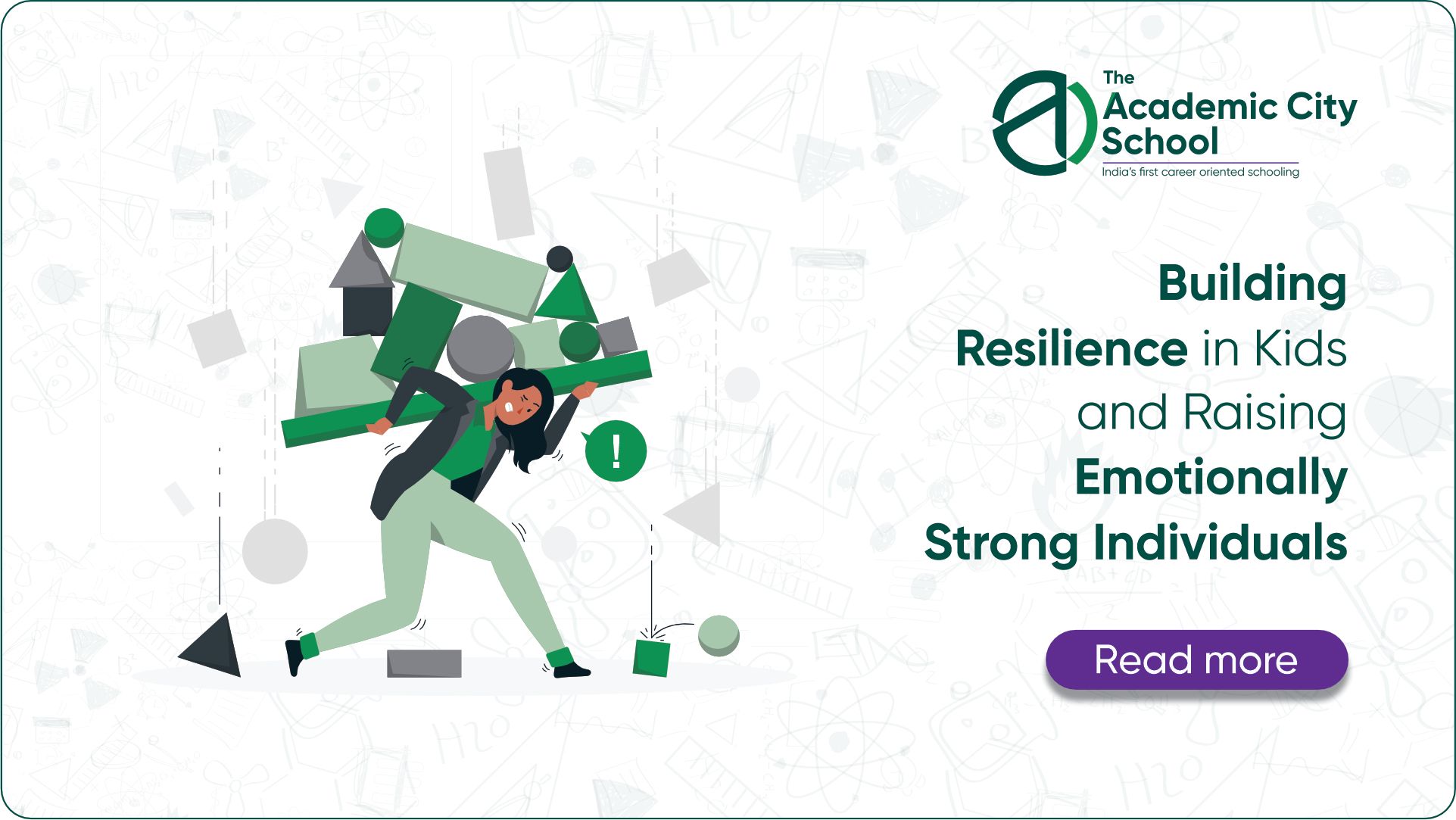Building Resilience in Kids and Raising Emotionally Strong Individuals

In a world where children face academic demands, social complexities and an unpredictable future, resilience has become the single most important life skill they can develop.
Dr. V S Ravindran, one of India’s most respected child psychologists, defines resilience as the ability to adapt well in the face of adversity, to recover quickly from setbacks and to keep moving forward with confidence. His research shows that resilience is not an inborn trait but a learned ability – something that parents, teachers and schools can actively nurture.
Emotional Safety: The First Layer of Strength
Resilience begins with trust. A child who feels emotionally safe is far more willing to take risks, make mistakes and try again. This safety net is built through consistent support from parents and educators.
Dr Ravindran emphasises that when adults listen without judgment and acknowledge children’s feelings, it strengthens their self-worth which is the cornerstone of resilience.
Practical Tip for Parents:
Ask reflective, open-ended questions like, “What part of today made you feel proud or happy or sad and why?” instead of only focusing on performance metrics.
Encouraging Healthy Struggle
Shielding children from all difficulties robs them of the chance to develop problem-solving skills. Resilient children are those who have experienced small failures, learned to cope and emerged stronger.
As Dr Ravindran notes, A supportive adult should guide, not rescue. Overprotection signals to the child that they cannot handle challenges.
In Practice:
Let your child handle age-appropriate tasks independently like managing their homework deadlines, organising their sports kit or resolving minor peer conflicts.
Building the Connection Between Effort and Growth
Children need to see that persistence and not perfection drives progress. Recognising effort over outcome helps them focus on the process of learning rather than fearing failure.
At Good Boarding Schools in India, this is often woven into daily life. Students live in environments where consistent effort in sports, academics or even creative pursuits is valued and celebrated by peers and mentors alike.
Creating Spaces for Expression
Resilient children know how to name and process their emotions. Whether it’s through art, sports, journaling or conversations, emotional expression prevents stress from becoming overwhelming.
Dr Ravindran’s workshops often highlight the role of schools in offering structured outlets such as debating clubs, theatre, sports teams, where students learn teamwork and emotional regulation.
The Role of Environment in Resilience
- While resilience starts at home, the school environment can strengthen it.
- CBSE Residential Schools in India offer structured daily routines that teach discipline and time management.
- Boarding Schools in India often integrate physical challenges like sports and adventure training, which build both physical and emotional grit.
- Strong pastoral care ensures that while students are encouraged to stretch their limits, they are never left without emotional support.
Modelling Resilience as Adults
Children absorb more from what they see than what they are told. When parents and teachers handle stress with composure, adapt to change and talk about solutions instead of dwelling on problems, children learn to do the same.
As Dr Ravindran says, Resilience is caught more than it is taught.
Choosing a School That Partners in Building Resilience
Resilience is not built in isolation – it’s a joint effort between home and school.
At The Academic City School, resilience is a deliberate part of our approach. Our residential setting offers a balance of structured routines and personal freedom, ensuring that students learn independence while always having mentors to guide them.
Here, challenges are viewed as learning opportunities and every child is supported to grow into a confident and emotionally strong individual.
The Takeaway
Resilience doesn’t mean a child will never face hardship. It means that when life gets tough, they have the inner strength, emotional balance and problem-solving skills to find their way forward.
As Dr Ravindran reminds us, A resilient child is not the one who never falls, but the one who always gets back up.





